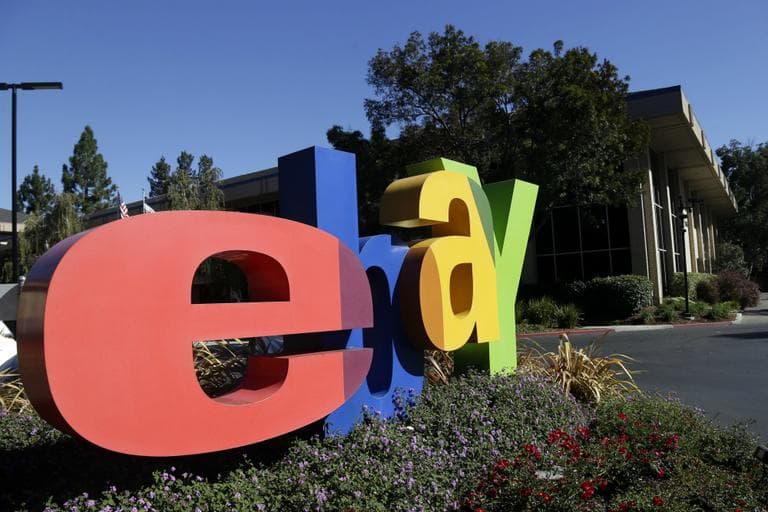Advertisement
Is This The End Of Tax-Free Online Shopping?
ResumeThe sales tax and the Internet. The Senate’s given a green light. We’ll look at the implications.

Online shopping has absolutely boomed in its now decades with essentially no sales tax.
For most, it’s been buy it at the corner store, pay sales tax or buy it online tax-free. And American shoppers have turned in droves to point-and-click shopping.
Now, the U.S. Senate has moved to level the playing field, to authorize states to require online retailers to collect and pay up on sales tax.
Brick and mortar retailers say it’s only fair. Cities and states say they need the money. Online retailers don’t want the hassle or the cost. And then, there’s you.
Up next On Point: the sales tax and the Internet.
-- Tom Ashbrook
Guests
John McKinnon, reporter for The Wall Street Journal, covering tax and fiscal policy. (@johndmckinnon)
Ann Wood, founder and owner of the online luxury consignment business Willow-Wear on eBay.
Steve Delbianco, executive director or NetChoice, a trade association of eCommerce businesses, including eBay.
Jason Brewer, vice president of the Retail Industry Leaders Association, whose members include Walmart and Kmart.
Rep. Peter Welch, Democratic representative to the U.S. House for Vermont's at-large congressional district
Show Highlights
Video
John Donahoe, CEO of eBay, spoke with The Wall Street Journal about the ins and outs of the online sales tax:
Tweets From During The Show
[storify url="http://storify.com/OnPointRadio/internet-sales-tax" width='500']
From Tom's Reading List
The Wall Street Journal: Senate Passes Online Sales-Tax Legislation -- "The debate stems from a 1992 Supreme Court ruling that held states didn't have the power to require out-of-state retailers to collect sales tax, unless the retailer had a physical presence, such as a warehouse or store, in that state. The ruling gave many online retailers a built-in price advantage and helped spur rapid growth in Internet commerce. As a result, state governments and brick-and-mortar retailers have pushed for federal legislation, enabling states to require out-of-state online retailers to collect sales tax for them on purchases by their residents, even if the merchants don't have a physical presence. The sales-tax rate would be determined by the recipient's address."
USA Today: Internet Sales Tax Passes Senate — "The issue pits retail behemoths such as Walmart and Amazon against small online sellers such as those on eBay in a fight for price and industry dominance. Those in support of the bill, which include Walmart, Amazon and Target, argue they're at a 5% to 10% price disadvantage by having to charge sales tax. States argue they're missing out on much-needed revenue. Last year, states could have collected more than $11 billion in online sales tax revenue, according to a study by the University of Tennessee."
U.S. News & World Report: There's Nothing Fair About an Internet Sales Tax — "Just a few years ago, retail giant Amazon primarily stood on the sidelines of the debate over federal legislation – dubbed the Main Street Fairness Act – to require online retailers to collect sales taxes. But now Amazon is front and center supporting the current iteration of the bill wending its way through Congress. Amazon's support aside, the tax revenues that states may be able to extract would be far dwarfed by the damage the legislation inflicts on growth, innovation and competition, and by further entrenching cronyism in our already troubled economy."
This program aired on May 8, 2013.
